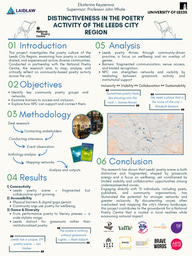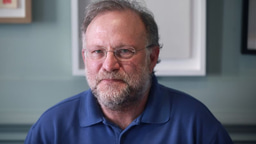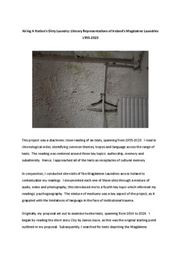The Importance of Good People: Navigating Connections in Humanities Research as an Introvert

I’m an introvert. It took me a surprisingly long time to realize that, and even longer to admit it to myself. I spent several years convincing myself that the anxiety I get from socializing is just excitement from being around so many people. I told myself that the exhaustion I felt was rooted in satisfaction. The truth is that while I love engaging with the connections I’ve made throughout my life, I usually prefer to observe from the sidelines. I’m a wallflower, and that’s okay.
Because of this, I thought my research would provide me some of the greatest comfort I could ask for. My project, (originally) entitled “Rhetorical Metamorphosis: The Evolution of Figurative Language from Old to Middle English”, (now) focuses on putting anthropomorphic voices from visions in Old and Middle English poetry in dialogue with each other (it has narrowed down quite a bit– we’ll get there). As it is a humanities project rooted in previous scholarship, I spent the majority of my working time in the library or at home, reading from the three-foot-tall pile of books I’d pulled or looking through archives on my laptop. It was just me, myself, and I for the first few weeks. I didn’t feel as I thought I would, though; instead of feeling safe in my own little bubble, I was lost in my own space. I got distracted easily and became frustrated with my inability to focus on even one task. I read my books, but the words soon blended together as I lost sight of what I was trying to achieve. I questioned and pestered myself, telling myself that my project wasn’t going anywhere. What was once my sanctuary – being alone – was becoming my downfall.
To get my thoughts rolling again, I voiced all of my worries about my work to my Action Learning Set (ALS) group. As two of the group came from humanities subjects not too dissimilar from mine, they understood the struggles of individual work in such. Through discussion and listening, I realized that the two greatest obstacles in my progress were 1. Establishing structure in my day to day activities and 2. Narrowing down my project. To tackle the first obstacle, I started meeting my group member and friend, Noura, in the library so that we could study together and ask occasional questions. I still felt comfortable in my own space while we worked in tandem.
The second obstacle was harder to overcome. I’m the type of person who outlines everything prior to starting a task to ensure my productivity and direction. However, I’m also the type of person to give myself outrageously large tasks that seem less daunting than they are and, when I don’t complete them, I feel like I’ve failed. The truth is, the proposed work in my project would have covered over six months of research, not six weeks. I needed to trim it down.
My supervisor, Dr. John Gallagher, described us both as “fastidious”, meaning that we are very concerned with details and knowing everything there is to know about a subject. This couldn’t be more true. My project covered almost a thousand years of medieval literature and I had anticipated connecting the dots between three to four poetic devices from Old to Middle English over that time in my own six week timeframe. I don’t like to say things are impossible but that would have been very, very hard.
So we talked it out, like I had with my ALS group. I told him what I found most interesting so far in my research and that I was frustrated because I couldn’t connect any dots (which was what my goal was) between these interests. An expert in the field of Anglo-Saxon literature, he told me that instead of forcing those connections, I should look more at putting my pieces in dialogue with one another and find such connections that way. We identified specific themes I gravitated towards, such as nonhuman voices and visions. We talked through my imposter syndrome and my limiting belief that my research had gone nowhere in the past few weeks. We figured out a solution, and I walked away feeling more motivated than I ever had.
To be clear, I’m not saying all of this to denounce being an introvert in research. I’m writing this to show that surrounding yourself with good people, no matter how many or how little, has incredible power to help you find your way. These people should be good in different ways; Noura helps me stay focused, John helps me with the intricacies of Old English. Texting with my cohort shows me that I’m not alone in my struggles; talking through my ideas with my dad (who knows nothing about my field) makes me ask myself questions I wouldn’t normally think of. And taking the time to disconnect from my research and be with my partner and friends helps me stay human. These good people spearheaded my success over the past six weeks, and I couldn’t be more grateful to have these connections in my life.
I put myself out of my comfort zone last weekend to attend the London Conference on Critical Thought. This annual conference brings together emergent ideas on critical thinking in the arts, literature and philosophy. It was the first time I had traveled alone without my cohort to an academic event pertinent to my research. I was quite anxious about attending, feeling intimidated as I was surrounded by dozens of seasoned scholars from around the world. But as I listened to their research and the ensuing discussions, I felt so lucky to even be participating in this event through attending. I was still dipping my toe into my research while everyone else was already neck deep, but I was still making an impact.
This is one of my favorite things about academia. In such environments where many scholars are grouped together from a plethora of backgrounds, hierarchies slip away. We don’t measure each other’s success; we ask about each other’s research with curiosity. We yearn to know more about the fields we’ve never delved into. We recognize what we don’t know and pursue it with passion. We look at the good people around us and know their worth, as well as our own.
So, to all my fellow introverts: it’s okay to be quiet. It’s okay to be shy. Just don’t forget the people around you and how much impact they can have in you finding your own way.
I would like to sincerely thank my supervisor, Dr. John Gallagher, and my Laidlaw cohort for their unwavering support and encouragement throughout this project. I would also like to express my gratitude to our Laidlaw cohort leader, Dr. Cassice Last, as well as Lord Laidlaw and the Laidlaw Foundation for the opportunity to conduct this work.





Please sign in
If you are a registered user on Laidlaw Scholars Network, please sign in
Grateful to have you as my library buddy Ami!